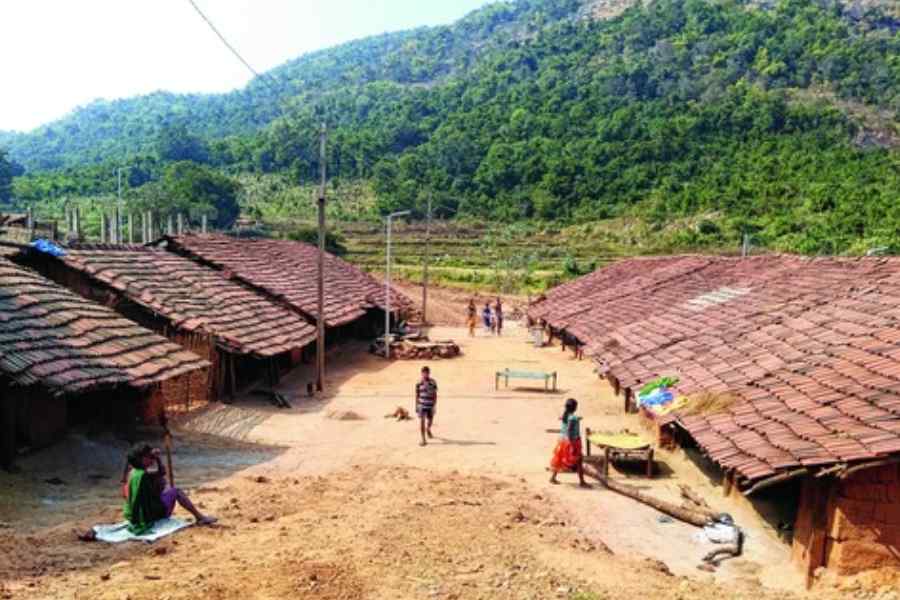Mendha-Lekha is a small Gond village of around 100 houses nestled in the forests of Gadchiroli district of Maharashtra. It has a unique slogan: “Our government
in Delhi and Mumbai/We, the government in our village (Delhi-Mumbai main hamari sarkar, hamare gaon me hum hi sarkar).” This is not just a catchy slogan; it is also representative of participatory democracy and is different from the Pathalgadi declaration made in Jharkhand. For the last 75 years, we have been a witness to the maladies of representative democracy. It is high time that we strengthen it with direct, participatory decision-making by the people as the 73rd Amendment to the Constitution intended to do. Mendha-Lekha has shown the way to put this into practice.
It all began in the mid-1980s when a movement called ‘Jungle Bachav, Manav Bachav (Save Forest, Save Humans)’ was started in the easternmost tribal districts of Maharashtra. The co-author of this piece, Mohan, who was taken in by Jayaprakash Narayan’s Sampoorna Kranti (Total Revolution) movement, was searching for a village that took decisions on the basis of consensus when he met Devaji Tofa of Mendha-Lekha. Following its tribal ethos, Mendha was taking decisions by consensus, but it was an all-male consensus. Mohan and Devaji brought in the idea of gender equality and made the village women equal participants. Since then, Mendha has taken all its decisions by consensus. Consensual decisions remove the violence implicit in the present system of majority decision-making.
The gram sabha, composed of all adult voters, is the ‘government’ at the village level. It carries out all the three functions of the government — creation of rules and regulations, decision-making, and delegation of responsibilities. Mendha is a self-governing village. The villagers follow self-discipline and self-regulation. This is the crux of swaraj wherein you first discipline yourself.
Following the system in central India, Mendha had ‘nistar’ rights over the surrounding forests. It not only guarded and conserved more than 1,800 ha of forest but also undertook joint forest management in collaboration with the forest department. This legacy helped Mendha to become the first village in the country to acquire community forest rights under the Scheduled Tribes and Other Traditional Forest Dwellers (Recognition of Forest Rights) Act, 2006. Following Mendha’s example, hundreds of villages in the country have acquired CFRs. The Monthly Progress Report (March 2023) of the ministry of tribal affairs informs that more than 2.3 million CFR titles have been distributed in India covering an area of 1,29,10,968 acres. But there is still a long way to go as only about 15% of the CFR potential has been realised as yet.
Mendha is also demonstrating how the non-timber forest produce can be productively and sustainably used by the people. A pole of bamboo, which used to fetch Rs 0.75 as royalty when the forest was leased to a nearby paper mill, is now sold at Rs 30-40 apiece. Mendha’s gram sabha not only collects and sells its own NTFP (tendu, mahua, honey, bamboo, among other products) but it has also created a federation of gram sabhas to deal with non-scrupulous traders and contractors. On an average, a family earns around Rs 20,000 annually from wage-labour and NTFP collection. The gram sabha has accumulated over seven million rupees in its village fund.
In 2013, Mendha declared itself a ‘gramdani’ village. Various state governments enacted ‘Gramdan Acts’ under which private property in land is dissolved and the same is held in common after the Gramdan movement of Vinoba Bhave.
Mendha tells us that it is essential to endow village communities with rights
over local natural resources to build the country from below.
Milind Bokil is a writer and sociologist; Mohan Hirabai Hiralal is a social activist associated with Mendha-Lekha











